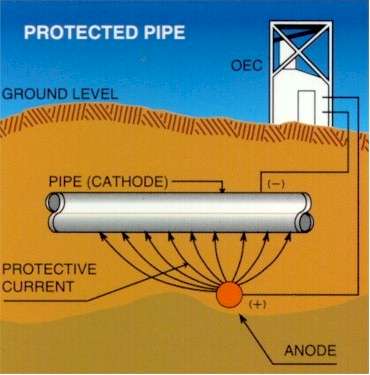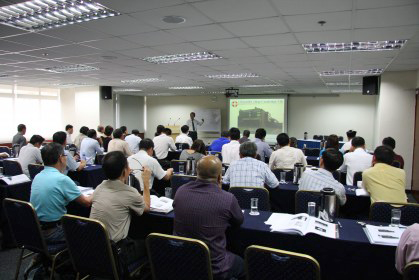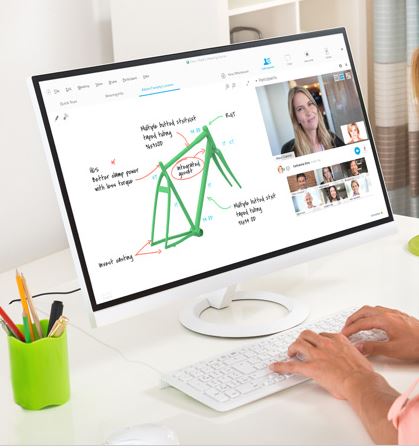|
Home | Consulting | Training | Expert Witness | Failure Analysis | Design Review | Corrosion Test | Corrosion Software | Protective Coatings | Materials Selection | Cathodic Protection | >>> | ||
|
Course Outline | Who Should Attend | Registration | In-House | On-Demand | Online Courses | PPT Slides+Testbank | Course List | Why WebCorr |
||
| Course Overview | ||
|
This course is available for in-house training, online and distance learning worldwide. It can also be customized to meet the specific needs of your organization.
|
||
|
||
| Course Outline | ||
|
1 Primer on Chemistry and Metallurgy 2 Fundamentals of corrosion
3 Cathodic Protection
3.2 Sacrificial Anode Cathodic Protection 3.3 Impressed Current Cathodic Protection 3.4 Criteria for Cathodic Protection 4 Instrumentation for Cathodic Protection of
Underground Pipelines
5 Cathodic Protection of Underground Pipelines
6 Stray Current Corrosion and Methods of Prevention
7 Pipeline Coatings
7.5 Coating failures and analysis
8 Field Joint Coatings
8.1 Pipeline Field Joint
Coatings
10 Pipeline Inspection: Survey Methods and
Evaluation Techniques
10.6 Modeling and Prediction of Pipeline Corrosion
10.7 End of Course Exam |
||
|
Course Outline |Who Should Attend |Registration |In-House |On-Demand |Online Courses |PPT Slides+Testbank |Course List |
||
| Who Should Attend | ||
|
Successful completion of this course helps participant prepare for taking NACE certification exams at Corrosion Technician, Corrosion Technologist and Senior Corrosion Technologist levels. |
||
| Registration for This Corrosion Course | ||
|
Click here to register for this corrosion course online, or Click here to download this corrosion course brochure with registration form in PDF format.
|
||
| In-House Training Corrosion Courses | ||
|
There is no limit to the number of participants required for in-house training corrosion courses. We conduct the in-house training corrosion course at your company's premises worldwide, and at a time convenient to your company.
Click here to contact us for a quotation for in-house training corrosion courses. |
||
| Corrosion Course-On-Demand | ||
|
Click here to contact us for a quotation. |
||
| Online and Distance Learning Corrosion Courses | ||
|
Click here to to register an online corrosion short course. |
||
| Corrosion Course-On-Webex | ||
|
Click here to contact us for a quotation. |
||
| PowerPoint Slides and Test Banks for Trainers, Instructors, Tutors, University Lecturers and Professors | ||
|
If you are involved in teaching or training, you may wish to purchase a complete set of the trainer's package for this training course. The trainer's package comes complete with ready-to-use PowerPoint slides (fully editable) and test bank (with answer keys). These ready-to-use PowerPoint slides contain high quality color photographs, illustrations, animations, audio and video clips. The test bank contains questions conveniently grouped into four categories: (1) true or false, (2) multiple choice, (3) calculation, and (4) reasoning and open-ended discussions. The trainer's package is suitable for in-house training and university teaching (30 lecture hours). This is exactly the same package that WebCorr uses to deliver our current training course. The one-time lump sum fee allows your organization to use the training package and also modify it. For example, your organization may modify the course contents and re-name/re-brand the course under your organization’s name. WebCorr only retains the copyright of the original PowerPoint slides and test banks.
Click here to contact us if you need more information on the trainer's package. |
||
|
Course Outline |Who Should Attend |Registration |In-House |On-Demand |Online Courses |PPT Slides+Testbank |Course List |
||
|
Copyright © 1995-2025.. All rights reserved. |
||
 Maintaining
the ageing infrastructure such as underground pipelines is a challenge
to facility owners worldwide. Understanding why and how cathodic protection works or fails can help the operator formulate
appropriate strategy in managing the pipeline corrosion problems. This
5-day course covers both the fundamentals and practices in designing,
operating and maintaining cathodic protection of underground pipelines. An
overview of the NACE standard on “Pipeline External Corrosion Direct
Assessment Methodology” will also be presented.
Maintaining
the ageing infrastructure such as underground pipelines is a challenge
to facility owners worldwide. Understanding why and how cathodic protection works or fails can help the operator formulate
appropriate strategy in managing the pipeline corrosion problems. This
5-day course covers both the fundamentals and practices in designing,
operating and maintaining cathodic protection of underground pipelines. An
overview of the NACE standard on “Pipeline External Corrosion Direct
Assessment Methodology” will also be presented. If you are concerned with corrosion in your
company, in-house training or on-site training is a great solution to train a group of
employees from design, production, operation, quality assurance, inspection
and maintenance, and technical sales and support on corrosion control and
corrosion prevention technology. The contents of all our corrosion courses can
be customized to fit your organization's needs.
If you are concerned with corrosion in your
company, in-house training or on-site training is a great solution to train a group of
employees from design, production, operation, quality assurance, inspection
and maintenance, and technical sales and support on corrosion control and
corrosion prevention technology. The contents of all our corrosion courses can
be customized to fit your organization's needs.
 All our publicly scheduled corrosion short courses are conducted once a year. However, you do not need to wait for one year if you have missed any of the publicly scheduled corrosion courses as we have this unique corrosion course-on-demand scheme: we will conduct the course just for you
(on an one-on-one basis) or for a small group from your company at a time and in a location convenient to you. This option costs significantly less than a full-scale in-house
or on-site corrosion training program.
All our publicly scheduled corrosion short courses are conducted once a year. However, you do not need to wait for one year if you have missed any of the publicly scheduled corrosion courses as we have this unique corrosion course-on-demand scheme: we will conduct the course just for you
(on an one-on-one basis) or for a small group from your company at a time and in a location convenient to you. This option costs significantly less than a full-scale in-house
or on-site corrosion training program. All
our corrosion short courses are available for online or offline distance
learning. You can start an online corrosion course at any time and learn
at your own comfortable pace and schedule, whenever and wherever you
are. You have around-the-clock access to the interactive and media-rich
course materials, virtual labs, course instructions and course assessments. Discussions and questions related to the corrosion courses
are posted on the website or exchanged through email for a period up to 3 months. Video conferencing or instant messaging can also be arranged for discussions of course topics.
For those who do not have ready access to internet, we can send
you our online course materials on a CD-ROM, or DVD, or USB flash drive for offline
distance learning.
All
our corrosion short courses are available for online or offline distance
learning. You can start an online corrosion course at any time and learn
at your own comfortable pace and schedule, whenever and wherever you
are. You have around-the-clock access to the interactive and media-rich
course materials, virtual labs, course instructions and course assessments. Discussions and questions related to the corrosion courses
are posted on the website or exchanged through email for a period up to 3 months. Video conferencing or instant messaging can also be arranged for discussions of course topics.
For those who do not have ready access to internet, we can send
you our online course materials on a CD-ROM, or DVD, or USB flash drive for offline
distance learning. Webex
is hosted by Cisco, a product purpose-built for real-time web
communications. If you are an existing user of Webex, or if you are
willing to experience the power of Webex, we can conduct the course for you
over Webex with audio and video presentations and interactions with the
course instructor and other course attendees in real-time. It is just
like the physical classroom settings that everyone can interact with each
other. Your questions will be answered in real time by our instructor.
Webex
is hosted by Cisco, a product purpose-built for real-time web
communications. If you are an existing user of Webex, or if you are
willing to experience the power of Webex, we can conduct the course for you
over Webex with audio and video presentations and interactions with the
course instructor and other course attendees in real-time. It is just
like the physical classroom settings that everyone can interact with each
other. Your questions will be answered in real time by our instructor.